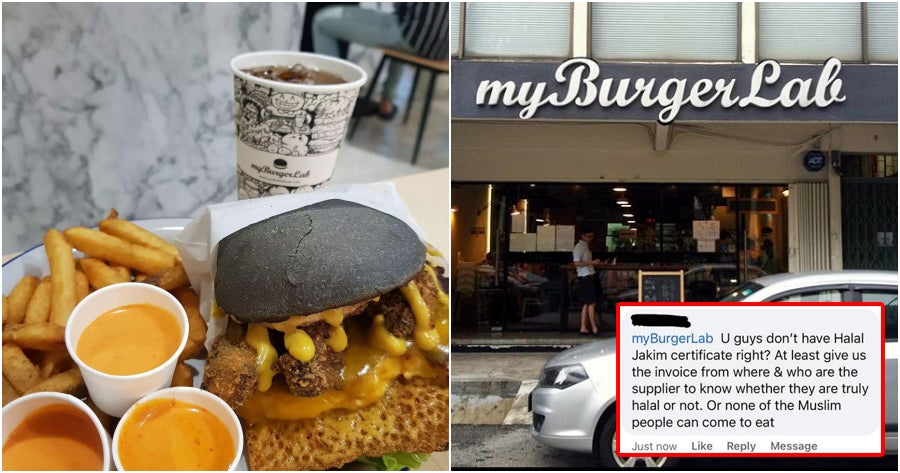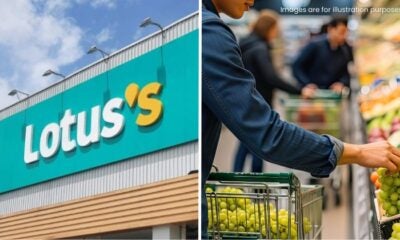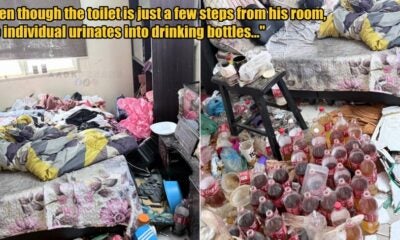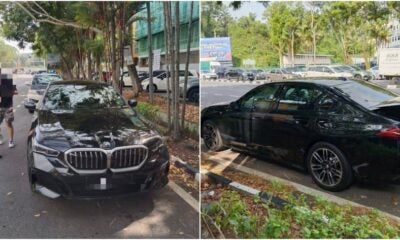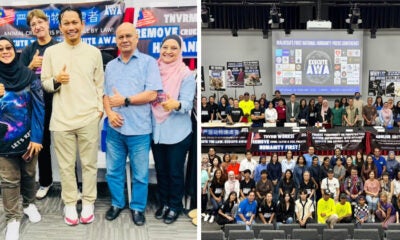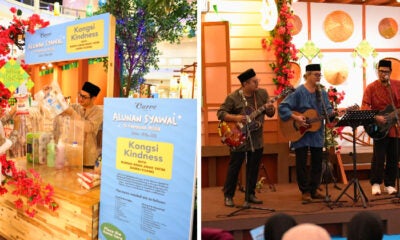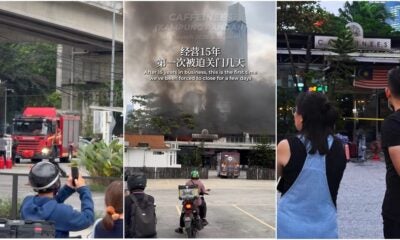When it comes to the food and beverage industry in Malaysia, halal concerns are one of the most fundamental issues that need to be taken into account especially if the operators wish to serve everyone, regardless of race and religion.
Recently, one of the most popular burger chains in Malaysia, myBurgerLab had taken to their Facebook account and shared their experience of conversing with a customer regarding halal concerns.
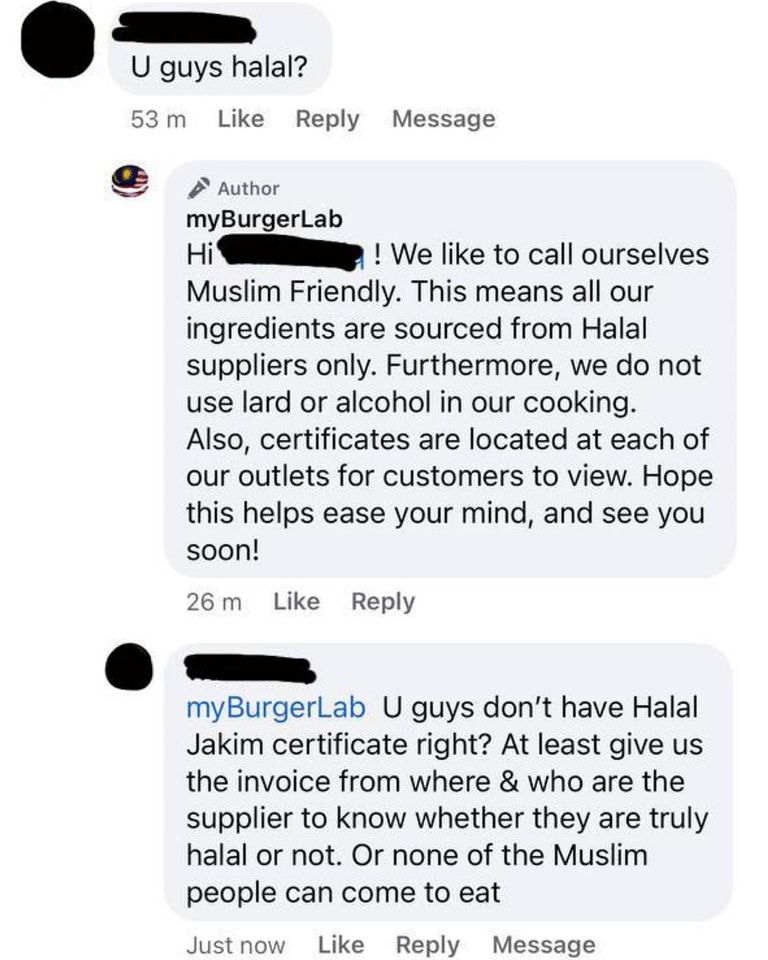
As seen in the post, myBurgerLab assured people that they are in fact Muslim-friendly, which means no pork, lard nor alcohol are involved in the food-making process. Not only that but all of their ingredients are also obtained from halal-certified suppliers. However, the customer was apparently dissatisfied with the answer and instead requested an invoice containing the list of suppliers.
myBurgerLab’s attempts on the Halal certificate
Following the incident, myBurgerLab took the time to explain their experience in obtaining the Halal certificate via another Facebook post this morning (29 October). In brief, they were in the midst of getting the Halal certificate in early 2020 but unfortunately, the pandemic hit and prompted the food & beverage businesses to halt their operations for dine-in.
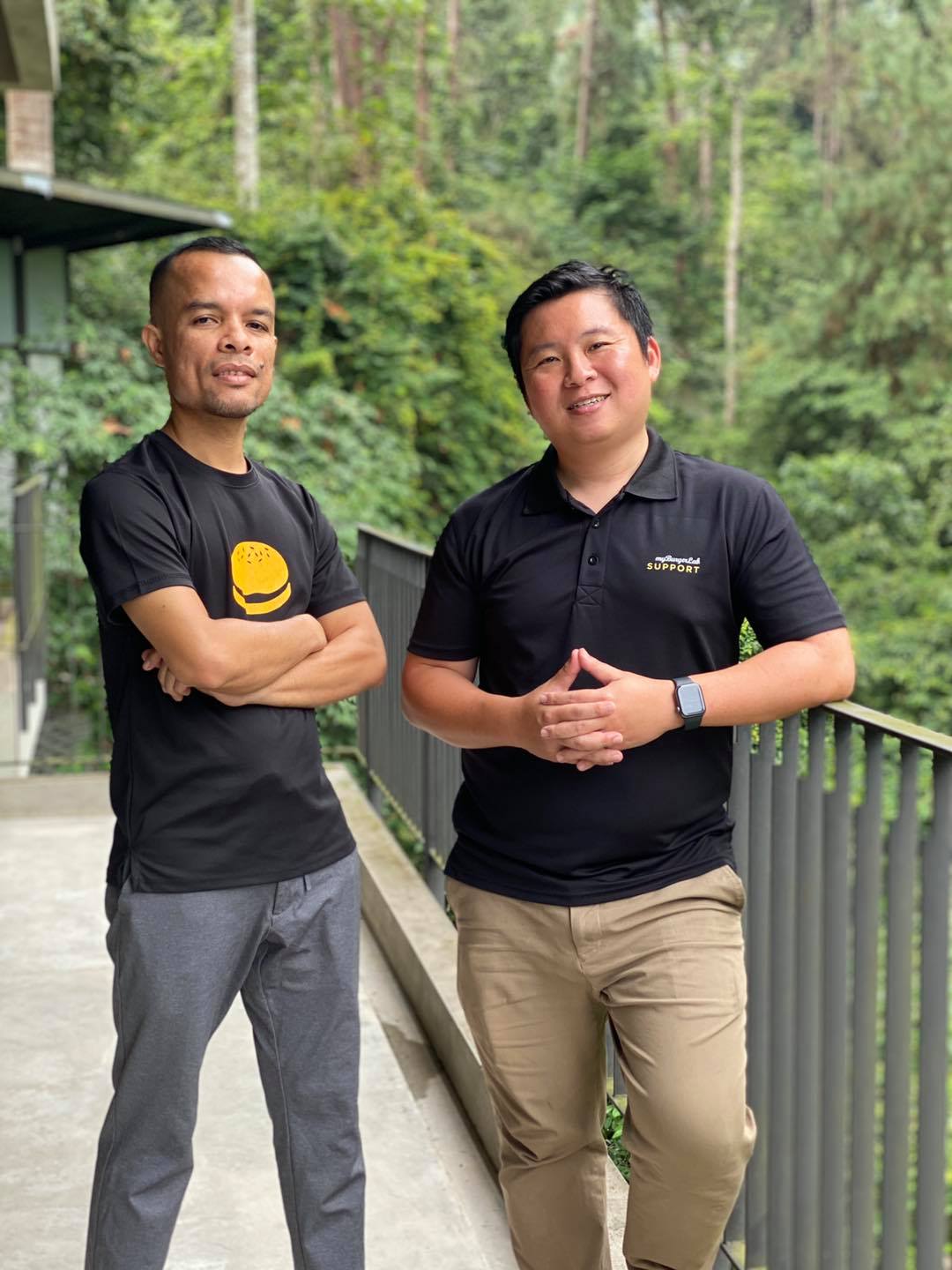
Fortunately, they managed to hire Nasir who has a background from reputable Halal brands in his previous careers. Nasir is the man in charge of getting a Halal certificate for the brand. They also expressed their hope in keeping everyone updated on the Halal concerns in the year to come, as well as serving all Malaysians regardless of religion and background.
WORLD OF BUZZ has reached out to Ren Yi, the co-founder of myBurgerLab for additional information and this is the response that we have received. Ren Yi stated that as a restauranteur that wants to serve their Muslim friends, they not only hire Muslim workers but also source the food from Halal (certified by Jakim) Suppliers and Distributors.
Pork-free implies that they might be still serving alcohol, which defeats the purpose of being Halal-certified. Of course, labelling their brand as non-Halal will immediately alienate Muslim friends and staff.
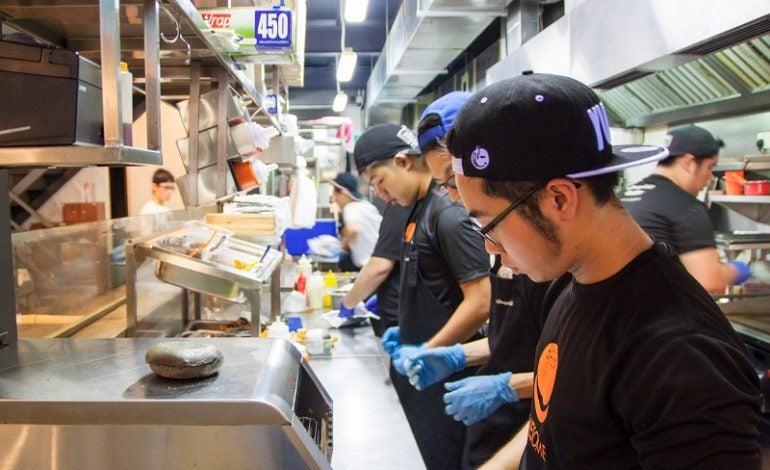
“Labelling ourselves as Muslim-friendly means we take our Muslim friends’ dietary requirements seriously, and will do what it takes to ensure we do not serve anything that is against their beliefs,” he added.
As for the Halal certificate, budget constraints and legacy issues are often the obstacles. Their central kitchen back then couldn’t be Halal-certified due to its location and layout.
“We have been waiting for the business to slowly scale to a size where we outgrow our kitchen so we can move into a new one that is designed to be Halal,” he explained and stated that it has always been budget and timing issue.
What do you think of this? Let us know in the comments below!
Also read: Popular US Fast Food Chain, FIVE GUYS Opens First Malaysian Outlet In Resorts World Genting

